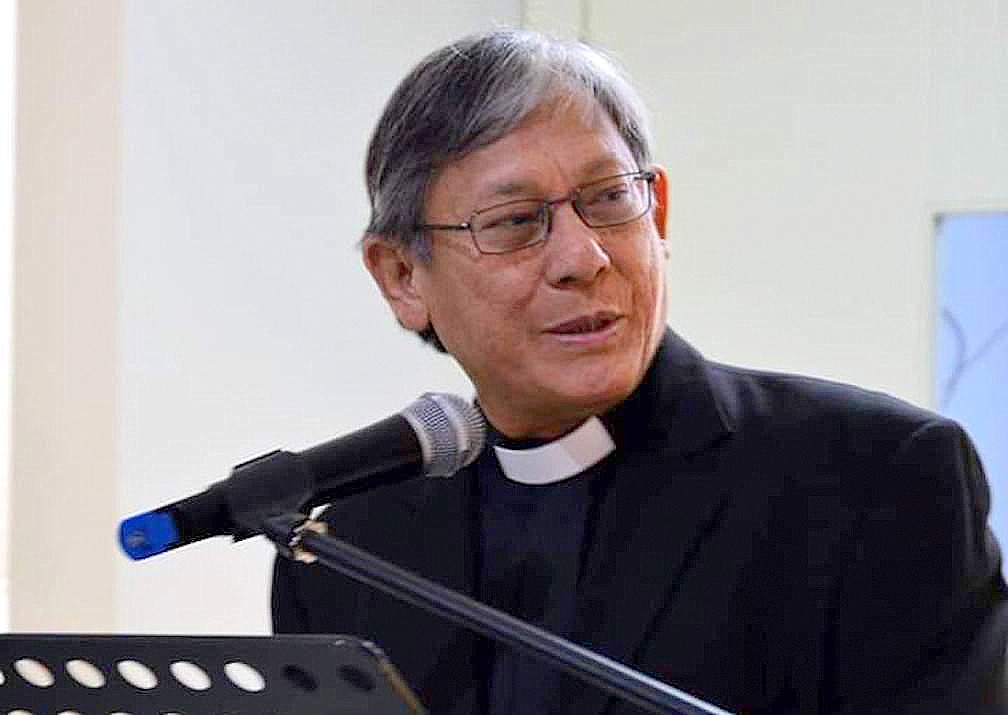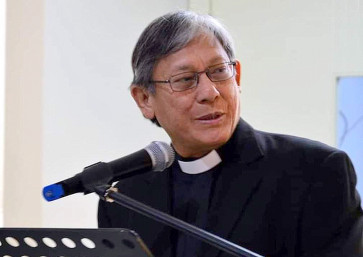Popular Reads
Top Results
Can't find what you're looking for?
View all search resultsPopular Reads
Top Results
Can't find what you're looking for?
View all search results[Obituary] Rev. Stephen Suleeman: Standing for LGBTIQ affirmation
The Reverend Stephen Suleeman died on Nov. 8, 2021, leaving behind a theological legacy that extended welcoming arms to bring LGBTIQ people into the fold while expanding the inclusiveness of the JTS curriculum.
Change text size
Gift Premium Articles
to Anyone
R
ev. Stephen Suleeman was the last person I wanted to interact with, let alone be friends with, when I enrolled at Jakarta Theological Seminary (JTS) in 2015. Rumors that he was supportive of people with diverse sexual and gender identities were circulating widely and had reached my non-LGBTIQ-affirming friends. They warned me about this and advised me to reconsider my decision to study at the seminary.
With my non-LGBTIQ-affirming background, I was determined to have minimum contact with Stephen to prevent his controversial thinking from “contaminating” me. However, it was virtually impossible to avoid him completely because Stephen taught research methodology, a compulsory course designed to prepare students for their field study.
In his class, I was exposed to the most uncanny and controversial facets of Stephen’s thinking: theologically based affirmation of LGBTIQ people. This only gave me more reason to shun him. However, the more I tried to seclude myself from LGBTIQ issues, the more inquisitive I became, and more interested in Stephen as a person.
How could a man love another man, or a woman love another woman? Why did a person choose to identify as transwoman or transman? Are these justifiable? My mind was inundated with many questions.
In November 2016, I could not stand my curiosity any longer and decided to attend the seminary’s international LGBTIQ and theology conference. There, I was surprised to see that there was no difference between LGBTIQ and non-LGBTIQ individuals except for their sexuality and gender. I was even more surprised to see them solemnly worshipping God. I eventually learned that there was no reason to demonize LGBTIQ people on whatever grounds, including the theological one. I later attended a queer theology class and learned that our theological conceptions about gender and sexuality were social constructs.
One month later, Stephen started dialysis because of a kidney problem. It became routine until the end of his life. Instead of backing off because of his ailment, he continued to march with LGBTIQ people in their fight for justice.
In 2017, Stephen asked me to help organize our annual conference. The theme was “His-tory, Her-story, Our Story: Doing theology with LGBTIQ perspectives”. I was surprised, because although I had reconciled faith and sexuality, my knowledge in queer theology was far from sufficient, as I was just beginning to study it. Nevertheless, I reluctantly took up the opportunity, assuring myself that I could study queer theology along the way.



















